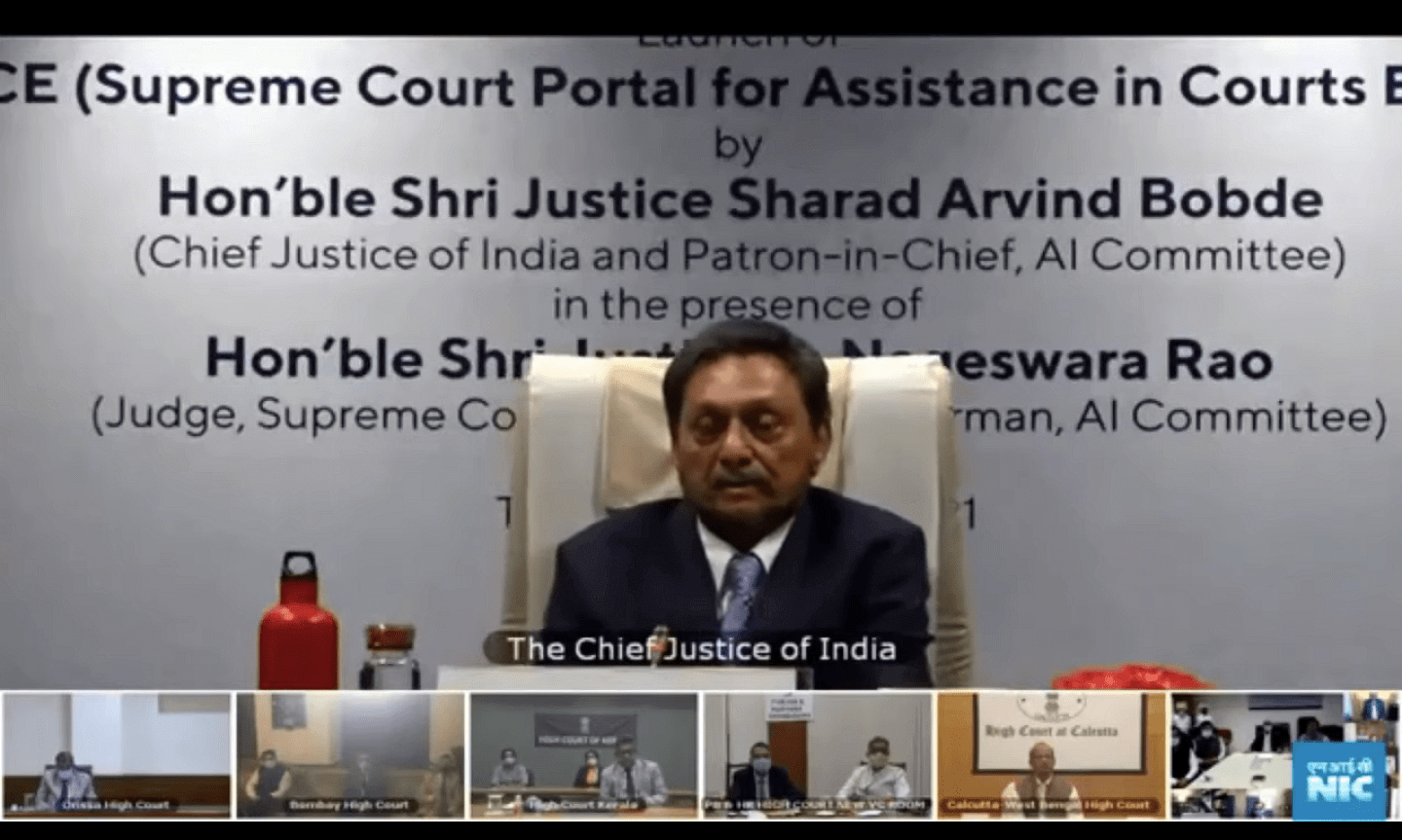On 6th April, Justice L.N. Rao, Chairman of the AI Committee of the Supreme Court of India, introduced a revolutionary new AI technology to relieve the burden of cases on India’s Courts. Justice Rao expressed hope that AI would present “a more streamlined, cost-effective, and time-bound means to bring to fruition the fundamental right of access to justice”. He cautioned that AI was unlikely to make human judges and lawyers redundant, but technology driven systems could indeed address existing bottlenecks and delays. This embrace of an AI-driven legal research tool to enhance the efficiency and productivity of the justice delivery system is likely to be a defining moment in India’s judicial history. SUPACE—a mass customization software—will help Judges examine voluminous legal data and documents swiftly, dramatically cutting down time taken for legal research.
Introduction of AI technology has been the brainchild of the Chief Justice of India, Justice Sharad Arvind Bobde. Inaugurating the software, he too allayed fears related to AI, stating the “autonomy and discretion of Judges would be maintained”. But technology was necessary to supplement and improve the justice delivery system. I have written before on CJI Bobde’s aptitude for a digital revolution in India’s Judiciary and the desperate need for technological intervention and integration in India’s Courts before. Let me reproduce the relevant paragraph on the challenge of judicial pendency here: “Currently, there are 3.1 crore cases pending in India’s district courts out of which nearly 21 percent have been pending for five years or more. To highlight this burden of cases, Justice Rao, while speaking on E-governance in the judiciary said that it would take 320 years to clear the backlog of 31.28 million cases, and every judge in the country would have an average load of about 2,147 cases.”
Chief Justice of India designate, Justice N.V. Ramana, called it a “historic event”. He was optimistic that this software would be able to help Judges to overcome judicial pendency and improve the Court’s functioning, particularly in matters relating to Criminal Law and victims of motor accidents.
Mr. Manthan Trivedi (CEO) and a team of data scientists developed the AI research tool (pro bono). Mr. Trivedi is a social entrepreneur, expert in “system’s thinking” and graduate of Kendall College and Harvard University. He has previously worked on the Chicago’s sustainable energy grid and Boston’s fisheries catch policy. At the launch, he stated: “we have able to design, develop, and deliver a software that can allow for the automation of repetitive processes. The system is able to find facts, issues, and points of law from thousands of documents in a matter of seconds”. Mr. Vishnu Gite (CTO) is the Technical Architect of this software.
A video of the launch—including a live demonstration of the software—is shown in the video below:

